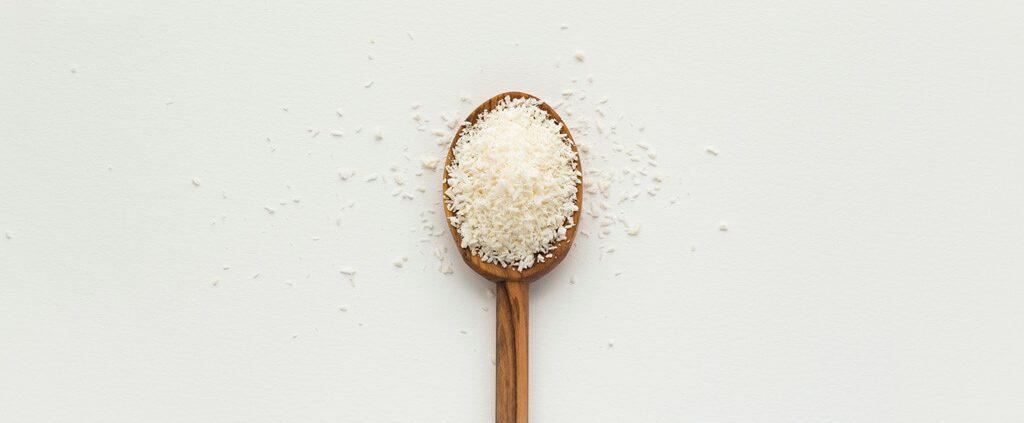4 Reasons Why We Should Take Science with a Pinch of Salt
Written By Leslie Koh
After spending a number of years in the media, Leslie finally decided to move from working with bad news to good news. He believes in the power of words (especially when they’re funny). He works as an editor in Our Daily Bread Ministries.
Whom would you believe about the “truth” of climate change? A politician, an activist, a journalist, or a scientist?
That’s easy, isn’t it? Politicians have their agenda, activists work for their cause, and journalists have news to sell, but scientists—well, they’re neutral, aren’t they? Aren’t their conclusions based on experiments and research, and don’t they tell the truth like it is?
According to surveys done in the wake of controversies over climate change, scientists generally enjoy a high level of trust among the public. Their word is often taken as reliable and objective, and scientific studies are seen as credible—at least, more credible than a politician’s promise or a newspaper report.
That’s a fair assumption to make, of course. After all, Science is the study and search for the truth about nature. It aims to discover the truth and gain new understanding. It observes and studies natural phenomena, comes up with possible theories to explain them, and tries to verify them through experiments. An honest scientist does not make assumptions about the world nor make claims that are not based on careful study and research. He does not take an emotional nor philosophical stand, and is always open to new discoveries and theories—he may make reasonable conclusions and deductions from his study, but does not presume to give the final word.
These are the lofty aims of Science. But is real-world science always reliable? Can it be fallible or flawed?
Scientists themselves have come up with a number of observations—and criticisms—about their own study, pointing out that there can be a difference between Science with a capital “S”, and science as it is practised in the real world.
Before we go into that, however, it is worth keeping in mind that there are some inherent aspects of science that we may sometimes forget or miss out when we read about the latest discoveries and studies.
1. Science is a study, not a fact.
Science is a never-ending search for the truth; it is a study of how the physical and natural world works (and how it used to work). It makes observations of nature, and uses theories and experiments to try to understand what is happening and why. It then makes conclusions and discoveries based on evidence that it finds or produces. Along the way, it may make some assumptions that it believes are reasonable and logical.
A true scientist, however, would never declare something as absolutely true, or claim to have the final word on how something works. If he does some experiments that seem to support his theory, he would say that the results are consistent with his hypothesis, and that he has not found any definite proof that it is false. He is well aware that his discovery or conclusions could be proven wrong if new evidence comes up later.
Just think about the people who were sure that the earth was flat. The evidence that was available at the time—observations made with the naked eye—seemed to indicate so, until new evidence came up showing that a ship sailing over the horizon would not fall off the map.
2. Assumptions and interpretations can be wrong
Most of us can remember the science experiments we did in school, and the “empirical” results that we obtained from our simple desktop experiments. This raw data can be in the form of numbers or observations—measurements of a growing plant, for example, or voltage of a battery being used. We then use the data as “evidence” to prove or disprove a hypothesis or theory that we have.
But raw data is just that—raw. As with much of knowledge, turning raw data into useful information often means having to interpret it and making assumptions. Interpretations and assumptions, however, are usually based on current knowledge and understanding—which, going by what we know about science being an ongoing study, can be limited. Assumptions can be flawed or affected by unknown factors, and interpretations may not always be accurate.
This is especially true in historical or forensic science, the study of past phenomena. Unlike operational science, in which experts study how things work (like electricity, for instance) and can do experiments to verify their conclusions, historical science has to make do with whatever evidence is available. More often than not, raw data is incomplete, unreliable, or inconsistent, and scientists have to explain the gap with reasonable deductions. It’s like looking at a crime scene and trying to figure out what had happened. The bloodstains and body simply show that someone had been killed, but investigators have to deduce who did it and why.
In the absence of substantial evidence, experts have to make some assumptions to reach a certain conclusion. Take fossil records, for instance. How do we know how old a particular dinosaur fossil is? One way is to determine the age of the layer of the earth and rocks in which it lies. That’s assuming that the animal was buried where it died, its bones were not moved, and the layers of the earth were not disturbed or mixed with older or younger layers.
You can also do carbon dating and other tests to determine the ages of old trees, bones and so on, but their results are hotly debated too. This is because carbon dating—which measures how much decaying radioactive material remains in a given matter—makes certain assumptions about things like how fast the material decays and how much of this material there was to be begin with.
3. Conclusions can be affected by bias
Science is ideally objective, but the people behind them may not be. The scientists who have to make assumptions and interpretations in their work are all too human, and may come to the laboratory with preconceived ideas and biases. Just like our experience, opinions, and faith can affect what we think about something or someone, the work of scientists can be very much affected by their personal beliefs.
One classic example of this can be found in the perennial clash between evolutionists and creationists. Evolutionists believe that animals and the human race came about from evolution, while creationists hold to the biblical explanation of how the human race came about—that they are made by God.
The first group often criticizes the second group for “disbelieving” the “scientific evidence”, and their disagreement is often portrayed as a case of faith versus science. In fact, the second group is made up of respected, professional scientists who take science most seriously and analyze empirical evidence objectively. Both sides believe that their conclusions are backed up by the evidence, but their opposing beliefs and viewpoints result in them making opposite conclusions from the same evidence.
For example, evolutionists point to fossils of animals and organisms as evidence these living things have been around for millions of years, and that some species had evolved from others. Creationists argue that the fossils show that evolution had not taken place, and that a global flood had indeed occurred, as the Bible described. Both sides also disagree over the accuracy of carbon dating used to back up their conclusions.
As we have seen, such a disagreement can take place because we are dealing with historical science, where basic assumptions can affect the conclusions when the evidence available is not complete or consistent. Again, using the example of the crime scene, it is like having two groups of investigators argue over what the evidence seems to prove. In the absence of say, a video recording, both sides can walk away from the scene convinced that the evidence shows that a suspect is guilty or not guilty.
You can see similar debates in other issues like climate change and stem cell research, where ethics, beliefs, and attitudes towards nature and man can lead scientists to opposite conclusions.
4. Politics and economics are involved
Just as science is not free of people, it is not free from politics.
Sometimes, scientists can make the wrong assumptions, interpretations, and conclusions because of power play within their industry, pressure from politicians, or economics.
This may not always be deliberate; experts might feel swayed by more established colleagues, or interpret their own experiments in line with widely-accepted theories. In the book The Golem: What Everyone Should Know About Science, the authors Collins and Pinch recount how experiments on Albert Einstein’s Theory of Relativity had discarded results that did not seem to support the famous scientist’s theory. The authors stress that this does not mean Einstein was wrong, but it shows how science can sometimes be “a truth brought about by agreement to agree about new things”.
Many scientists also find it hard to reconcile science and religion; some even believe they are mutually exclusive, or feel they might be seen as foolish to consider the existence of God when trying to explain natural phenomena. Canadian nuclear physicist Jim Mason was brought up in a Christian family, but became an atheist after discovering his interest in science. Even after he turned to God in his 40s, he said, it took him several years to realize that there was no contradiction between his faith in God and the Bible, and his scientific knowledge and understanding.
Politicians and money can also motivate scientists to come up with pre-determined results. Just think of the numerous studies and conclusions that emerged in controversial issues such as smoking and climate change. Does smoking cause cancer? Is the earth warming up too quickly? Often, you have to check who’s funding the “objective” study to determine how reliable the conclusions are—and whether you should believe it at all.
More recently, some have accused health experts and authorities of exaggerating the dangers of a flu pandemic, noting that pharmaceutical companies stand to gain from a scare that results in people rushing to buy vaccines and other medicines.
So, should we trust Science?
All this doesn’t mean science is to be distrusted or viewed with great suspicion. As studies go, you could say science is more rigorous than others, say economics or social studies. Often, experiments can be done to verify theories, and scientists do try to stay objective as they keep to their principles and ethics. And they have more tools and techniques to observe, check, and test their theories and results.
But it is worth remembering that ultimately, scientific study is carried out by human beings. The pursuit of Science is susceptible to all the weaknesses and limitations of man and can be thus as subjective and emotional as issues of faith and belief.
This means that while it is understandable that we place greater value on opinions given by experts and the results of “scientific” studies, let us keep in mind that they do not give us the final word on how nature works. Scientists do try their best to observe, interpret, and understand why things work the way they do, or what had happened in the past. But we should not always take their conclusions as absolute fact. We need to remember that they, too, are human, and their work can be influenced by who they are, how they think, whom they work for, and what they believe in.
It also means that if a scientific study, opinion, or result seems to contradict something we believe in or hold on to by faith, it doesn’t mean our faith or belief is automatically wrong; we also need to think about the reliability and trustworthiness of the science. Like a judge or jury listening to arguments by the prosecution and the defence on whether an accused man is guilty or innocent, we need to make our own conclusions on whether their case is well supported by all the evidence available.
Randal Rauser, a Canadian seminary professor, puts it aptly in a post on his website, “Science is a fallible, flawed, and all-too-human human endeavor (but it is also the best thing going)”. He stresses that while there is no denying the value of scientific study, we have to remember that it is ultimately carried out by people.
“I just don’t want us to have a naive and uncritical understanding of science,” he writes. “It is a staggeringly successful endeavor, but it is also a staggeringly human one.”
For further reading, read “Beyond Reasonable Doubt“









In this age of bombastic language, opinions that brook no dissent and extremism retaliation against anything anyone sees as dissent. The “truth” is often what the loudest most scariest group/person says is the “Truth”.
While people that actually speak the more sensible and correct “truth” are thus often drowned out and hidden from plain sight unless we dig for them, and then how can we be sure that that is really true.
When all is said and done, as Christians, we should thus always go back to the source of our faith. Which by faith be believe is the ulitmate truth. All the rest are thus subjective truths. And for everything and everyone else, well heck the rest.
1)Faith and science actually contradict
2)When you really research on the creation of God,you’ll realise that the earth is actually flat not spherical. Genesis 1 talked about a firmament which science doesn’t make mention of.